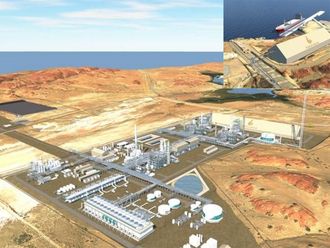This is the thirtieth edition of my Ten Surprises of the New Year. I define a surprise as an event that the average investor would give only a one out of three chance of taking place, but that I believe is probable (i.e., the event has better than a 50% chance of happening). My goal is to push investors to think about the unexpected events which so often have an impact on the financial markets. Usually, I get five or six of the Surprises more or less “right,” but I am not trying for a high score. I do The Surprises to get myself (and hopefully our clients) beyond linear thinking.
Last year, my results were on the favorable side of average for The Ten Surprises. I got six of the Surprises mostly right, but there were a few that I missed, including the year-end drop in oil.
But enough of last year, here are my surprises for the 2015 calendar year.
1. The Federal Reserve finally raises short-term interest rates, well before the middle of the year, encouraged by the improving employment data and strong Gross Domestic Product growth. The timing proves faulty, however, as the momentum of the economy has begun to flag and a short-term slowdown has started. The end of monetary accommodation and rising rates precipitate a correction in equities. Long-term Treasury rates stay where they started and the yield curve flattens.
2. Our luck runs out on cyber terrorism. Hackers invade the personal and corporate accounts of a major money center bank and the Federal Reserve orders the institution to suspend transactions for five business days while the accuracy of its balances is verified. 3. The year-end 2014 rally in United States equities continues as the market rises for a strong performance in 2015. A growing economy, fueled by housing and capital spending and favorable earnings, enables the Standard & Poor’s 500 to increase 15% during the year, outperforming equities in most major industrialized countries throughout the world.
4. Mario Draghi finally begins to expand the balance sheet of the European Central Bank aggressively by buying sovereign debt, mortgages and corporate bonds. In spite of this expansion, Europe falls back into a serious recession. Germany is particularly weak as reduced demand from various trading partners has a major impact on its exports.
5 Shock and awe no longer works in Japan. The recession which began in the third quarter of 2014 continues throughout 2015 in spite of further fiscal and monetary stimulus and the suspension of the second planned sales tax increase.
6. China reports that it is no longer growing at 7% and that more fiscal and monetary stimulus is needed to grow at even 5% and to prevent a hard landing. It also acknowledges that it must rebalance the economy toward the consumer and away from credit-based investing in state-owned enterprises and infrastructure. What money is spent on infrastructure is focused on air, water and ground pollution, not roads and housing.
7. The drop in the price of oil finally has an impact on Iran. The country was dependent on its sale of crude to offset the impact of sanctions. The economic weakness resulting from the unexpected decline in oil finally forces a conciliatory attitude on the part of its nuclear negotiators.
8. Brent slips into the $40s. The low price of crude oil, which continues throughout the first part of the year, has a major impact on Russia. But During the second half of the year, West Texas Intermediate and Brent crude are both above $70, as emerging market demand continues to increase.
9. The year-end 2014 meltdown in the high yield market, as a result of the collapse in the price of oil, creates a huge buying opportunity. The spread between high yield and Treasury’s is cut in half, and high yield becomes the best performer of the various asset classes as the U.S. economy continues to grow.
10. The Republicans decide to position the party as the one that can get something done in Washington. They argue that President Obama was ineffective in his first six years, but when they got control of both the Senate and the House, legislation was passed. Every year there are always a few Surprises that do not make the Ten either because I do not think they are as relevant as those on the basic list or I am not comfortable with the idea that they are “probable.”
Also rans:
11. Water becomes the central environmental issue of 2015, eclipsing carbon-caused air pollution. It becomes a source of considerable tension in India and China, where large parts of the population do not have safe drinking water on a consistent basis.
12. Internet commerce runs into trouble, and stocks for the likes of Airbnb and Uber decline sharply.
13. Brazil provides an emerging market favorable surprise. President Dilma Rousseff introduces a number of business-friendly policies and the economy improves. It is helped more than it is hurt by the drop in the oil price. Brazil becomes a favorite of emerging market investors once again.
Byron Wien is the vice chairman of Blackstone Advisory Partners LP.












